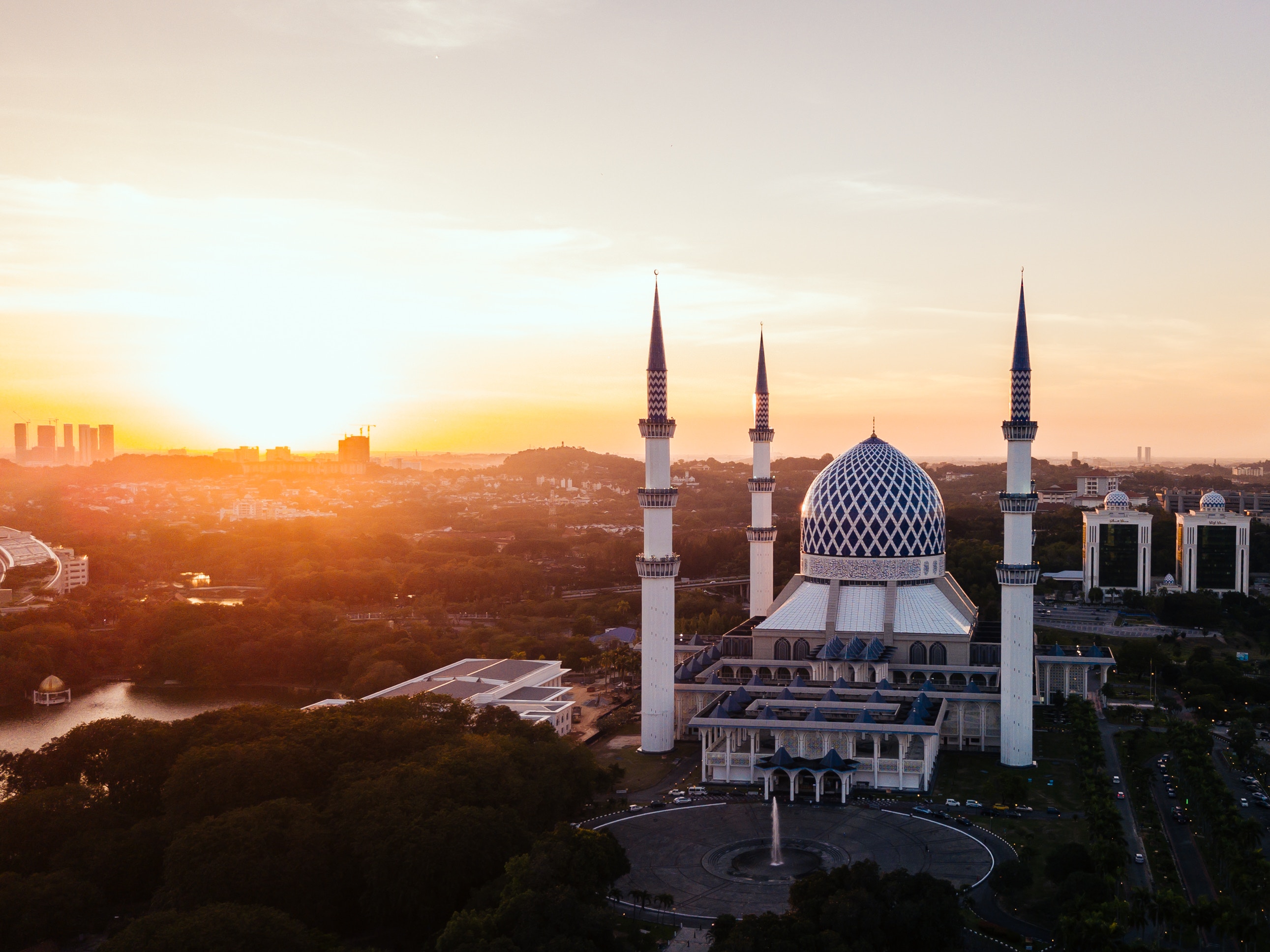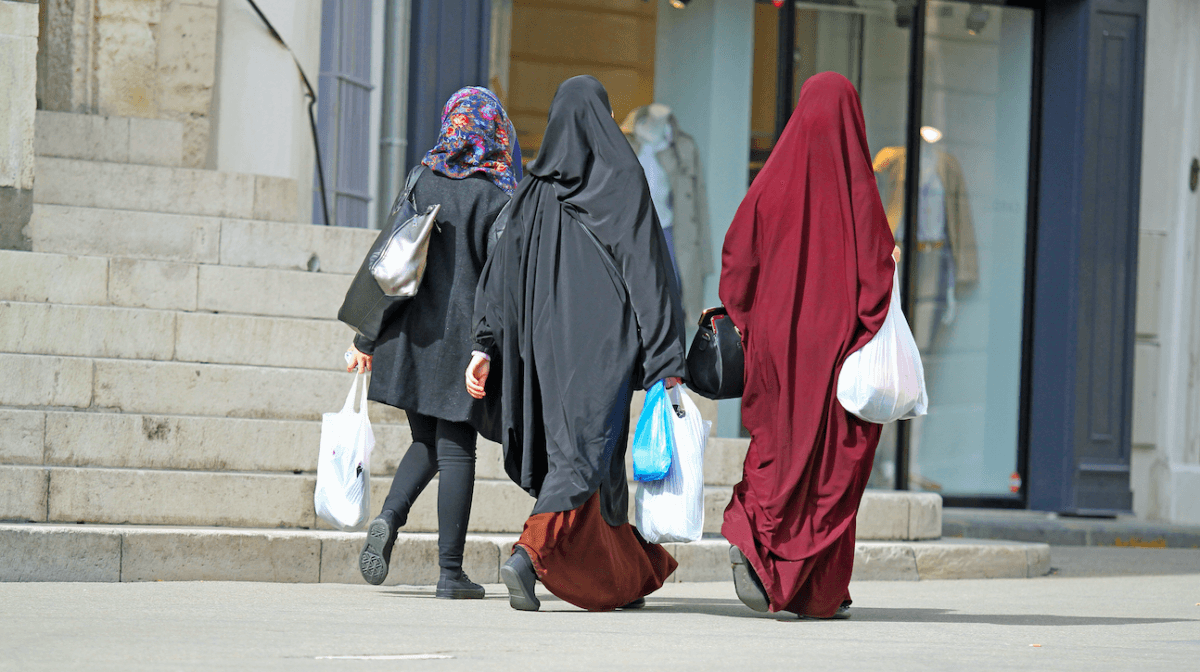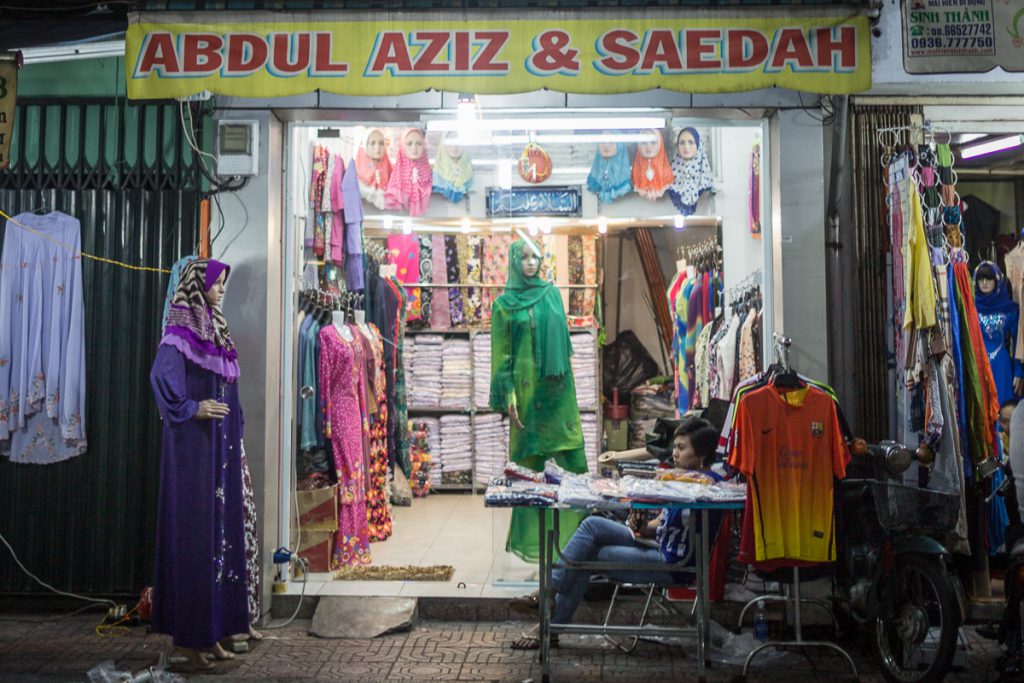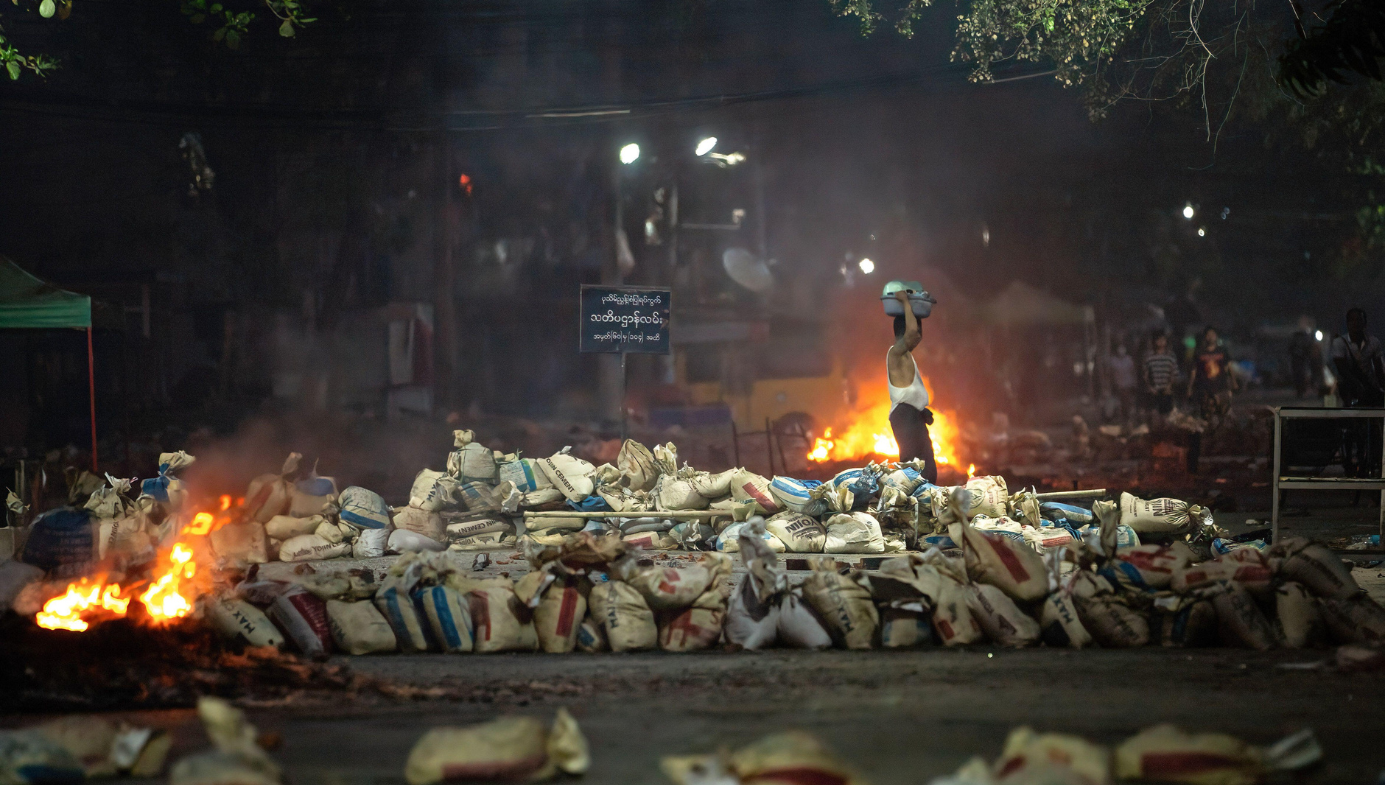Asia
Malaysia's Struggle to Preserve Religious Pluralism
Residing in Malaysia in the final years of the Najib administration, one could be forgiven for thinking society had somehow collectively lost its mind.

For observers of contemporary Malaysia, much has been written about the tropical nation’s creeping Islamization. To define this more specifically, the observable interjection of Islamic morality into its institutions, its legal systems, and its political discourses and practices. The move towards a more puritanical and intolerant Islam has raised alarm bells for a country whose identity is rooted in its cosmopolitan and pluralistic character, raising the ugly specter of ethnic and religious conflict in one of Southeast Asia’s most developed economies.
However, the shock victory of an opposition coalition in a historic general election in May 2018 raised hopes of a “New Malaysia.” The incumbent political coalition, Barisan Nasional (National Front), composed of race-based parties, with the dominant United Malay National Organization (UMNO) component explicitly espousing Malay-Muslim supremacy, was ousted after 61 years of uninterrupted rule since the country’s independence from the British in 1957. With a new administration under the Pakatan Harapan (Coalition of Hope) coalition, and with veteran leader Mahathir Mohammed back in power in his second stint as Prime Minister (at the age of 93), many celebrated the supposed breaching of racial divisions as voters came together to overthrow a deeply unpopular government. But does the new government necessarily mean a rollback of Islamization?
The Golden Peninsula
Malaysia’s diverse makeup can be explained by its geostrategic location within Southeast Asia. Historically straddling maritime trade routes between the markets of China, the Middle East, and India, the Golden Peninsula (as the ancient Chinese referred to it) served as a magnet for peoples across Asia to settle in its lush and fertile lands in search of prosperity. The most lasting waves of migrants would come in the late 19th and early 20th century under British colonial rule, when the colony saw an influx of cheap, impoverished labour from China and India to work in the lucrative tin mines and rubber plantations respectively.
Despite the Chinese and Indians composing a significant component of Malaysia’s population, at around 33 percent and 10 percent respectively by 1957, Malaysian society was largely characterized by pluralism and mutual tolerance. Although Sunni Islam commanded the largest number of adherents, the religious practices of Buddhists, Christians, and Hindus were accommodated and tolerated by the majority Muslim Malays. The practice of Islam in Malaysia has been popularly characterized by pundits as a more moderate form of Islam as compared to other areas of the Muslim world.
Different explanations about why this is have been put forth. Unlike the Middle East and the Indian subcontinent, where Islam would come through Arab and Turkic invaders, Islam was transmitted to Southeast Asia primarily through traders in the 15th century, arguably meaning an inherently less-militarized form of Islam was adopted at onset. Rather than fully implementing Sharia, scholars point to the syncretization of Islamic traditions with the peninsula’s pre-Islamic Hindu-Buddhist and animist practices, creating a composite Islam which speaks to the region’s adaptability to foreign influences.
This plural society would continue to hold in Malaysia as colonial rule drew to a close and independence was granted in August 1957. Veteran Southeast Asian journalist Michael Vatikiotis chronicles the life of late Singaporean Prime Minister Lee Kuan Yew in his book, Blood and Silk: Power and Conflict in Modern Southeast Asia. Lee hailed from a generation who grew up alongside Muslims in relative communal harmony. Lee called the Islam he was familiar with “Tropical Islam”; the sort of breezy, relaxed and pragmatic Islam evocative of the serendipity of early Malayan society itself.
Malaysia’s whisky loving and English-educated founding father, Tunku Ahmad Rahman (who often skipped cabinet meetings to attend the races) personified this Tropical Islam. Early postcolonial Malaysia was administered by English-educated elites, who sought to eliminate poverty and promote equality, and were ideologically more interested in secular Malay nationalism than political Islam.
From Tropical Islam to Desert Islam
However, starting in the seventies and continuing well into the 21st century, this carefree Islam largely relegated to the personal sphere became replaced by a more conservative and politicized variant of the faith. More Malay women discarded Western clothing in favor of headscarves or tudungs, coinciding with an increasing social policing of the female form within the public sphere. Religious morals were increasingly interjected into the national curriculum, and religious schools proliferated.

Islamic values were injected into the government bureaucracy, with Islamic departments springing up to crack down on vices such as unmarried couples holding hands, Muslims breaking the fast, atheism, and LGBT activities. This newfound religiosity intruded into the cultural space of non-Muslims, with courts ruling to forbid Christians from using the word “Allah” in their religious texts. Beer advertisements and the sale of pork have also been curtailed. And it is increasingly difficulty to acquire permits to build non-Muslim houses of worship (while the state-led construction of mosques proliferate).
This visible Islamization was unnerving for many non-Muslims, with many older generation Malaysians I interacted with lamenting the loss of a more cordial society where social divisions had been less stark. The Tropical Islam of palm trees and carefreeness became what Vatikiotis termed the “Desert Islam” of the Middle East: barren, lifeless, and intolerant.
The Catalysts for Islamization
So what were the catalysts for this shift from Tropical Islam to Desert Islam? The Islamization of Malaysia can be attributed to both internal and external factors.
The British bequeathed its former colony with many of the trappings of a modern state; including high courts with bewigged judges and a Westminster style parliament. However, they also left behind an inherently racialized political system which sowed the seeds of future conflict. The import of Chinese and Indian coolies by the British to work the mines and plantations had a political rationale behind it; a racialized division of labor ensured that cheap labor could be employed without having to empower the native Malays in classic divide and rule.
The separate administration of each community widened the socio-economic gaps which persists to this day. The Western colonial powers ignored their own cultural beliefs of individualism in favor of treating their Asian subjects as subordinate to their respective communities, and subsequently deepening religious divides. The largely rural Malays would resent the largely urbanized and better-educated Chinese, who inserted themselves as economic middlemen in the colonial pecking order and soon came to dominate the mercantile sector. The Chinese towkays (business owners) and their entrepreneurial spirit ensured Chinese economic dominance. It should be noted, however, that native fears of being overrun by their wealthier Chinese minority can be found across Southeast Asia, and wasn’t unique to Malaysia alone.
It was this underlying fear by the Malays of being overrun by their non-Muslim neighbors that drove them to utilize Islam to delineate clear separations between their respective communities. For many Malay political leaders, ethnicity and religion became firmly intertwined. To fight for Islam was to fight for the Malays, while any perceived threat to the status of Islam threatened the economic privileges granted to Malays through controversial affirmative action policies (which granted privileged access to higher education, government contracts and housing). This ethno-nationalism is a key point which differentiates the political Islam of Malaysia amongst other global Islamist movements. As Michael Vatikiotis noted about the Islamization trend: ‘It is a striking example of how pious religious observance has been deployed as a boundary marker in more complex social and economic settings.”

Islam was also harnessed for political posturing within the context of Malaysian competitive politics. Scholars point to the interplay between the ruling United Malay National Organisation and the opposition Islamic Party of Malaysia (PAS) over Malay votes as a significant impetus for the Islamization trend. Founded in 1951 as another secular left-leaning Malay nationalist party, PAS shifted to Islamist politics starting in the 70s following reorganizations within the party. PAS attracted Malay votes through their image of simple, pious Muslims only concerned about Malay welfare and redistributive politics, in opposition to the rampant corruption and money politics found then in UMNO.
PAS argued that an Islamic State presented a viable solution to the perceived secular materialism of UMNO, and exploited Islam’s mechanism as a form of release for many Malays facing cultural alienation and economic uncertainty brought on by Malaysia’s rapid economic growth in the late 20thcentury. Development begot social dislocation as traditional village-bound moorings were severed in Malaysia’s awkward march to modernity, leaving many Malays rootless in terms of identity. State crackdowns on activists and student politics further ensured that mosques remained the only conduit for frustrations to be vented about the state of society.
UMNO for their part grew concerned about the increasing popularity of PAS, as it threatened their reason d’etre as the defender of Malay interests. Pressured to display their Islamic credentials, then Prime Minister Mahathir Mohammed invited Muslim student activist Anwar Ibrahim to join the UMNO government in 1982. A powerful orator, throughout his dramatic political career Anwar presented himself, Janus-faced, as both the Westernized liberal and the Muslim activist depending on his audience.
By 1998 Anwar, who had risen to the position of Deputy Prime Minister, was sacked over differences with Mahathir on the government’s response to the 1997 Asian Financial Crisis. Never one to disappear from the limelight, Anwar reinvented himself as a major opposition leader, and was subsequently charged and imprisoned on charges of corruption. He was released, before being thrown back into jail in 2015 on sodomy charges after the opposition made huge gains in the 2013 general elections (in what critics at the time labelled a show trial). Regardless, his formal entry into politics opened the floodgates for Islamist activists to entrench themselves within Malaysia’s institutions of power.
Those appalled at Malaysia’s turn to religious bigotry pinned their hopes on Najib Tun Razak, who took power as Prime Minister in 2009 on promises of reforms and a moderate approach to Islam. However, in 2015 Najib found himself embattled after facing damning allegations involving a debt-laden state-development fund and some $700 million somehow entering his personal bank account. The scandal surrounding the 1Malaysia Development Berhad (1MDB) fund gripped international media, with investigations into financial malfeasance involving the fund taking place in the U.S., Switzerland, and Singapore. The U.S. Department of Justice would file a lawsuit in 2016 alleging that $4.5 billion had been diverted from 1MDB, with most ending up in the pockets of cronies and relatives close to Najib. The government would consistently deny any wrongdoing, but its public image was severely tarnished even for a country accustomed to corruption at the highest levels.
Feeling the heat, Najib abandoned his moderate image in favor of currying favor with Islamist elements. The government portrayed criticisms of the authorities as conspiratorial plots by non-Muslims to disrupt the position of Islam within Malaysia. Najib denounced what he labelled “humanrightism” as deviant thinking (insofar as it “places secular law above religion”), and flirted with religious hardliners about passing Islamic penal law (which prescribes, among other things, the amputation of limbs and stoning for adultery). Coupled with this was an increasing clampdown on civil society, with media outlets covering the scandal having their licenses suspended and critics of the government being charged with sedition.
Residing in Malaysia in the final years of the Najib administration, one could be forgiven for thinking society had somehow collectively lost its mind. A Malay obsession with maintaining the sanctity of the religion (egged on by the authorities to divert anger) had seen religious practice descend into the pettiest of impulses; including trying to ban Muslims from petting dogs, separating shopping trolleys for Muslims and non-Muslims to avoid “contamination,” and even trying to change the name of hotdogs.
“Malaysia is a sick Muslim country which teaches you the wrong things,” lamented a prominent Malay opposition leader, before urging Malays to make a hijrah (referring to the migration of the Prophet to avoid persecution) to the U.K. Indeed, as the bonds which held Malaysia’s multi-ethnic composition together looked increasingly fragile, many educated Malaysians voted with their feet by migrating to Singapore and Australia.
It is also prudent to look at external influences in Malaysia’s march toward Islamisation. Malaysia has historically been sensitive to foreign cultural trends owing to its position as a nexus between East and West. The failure of secular authoritarians in the Middle East to lift up their Muslim societies saw Islamism prop up as a popular alternative for Muslims everywhere. The Iranian Revolution of 1979 captured the imaginations of many Muslim activists in Malaysia insofar as it presented an alternative to Western concepts of modernization. Coupled with this was the influx of petrodollars into Malaysia by newly-flushed Gulf states, a large chunk of whom was used to proselytize their austere and intolerant brand of Islam.
A New Malaysia?
The shock election results of May 9 was a historic moment for many Malaysians. The incumbent UMNO government under Najib was overthrown spectacularly after 61 years of uninterrupted rule due to mounting public frustration at rising costs of living and the seemingly shameless corruption seen at all levels of government.
More incredible was that the opposition was led by former Prime Minister Mahathir himself, who had become a firm critic of Najib’s administration and retained enough political capital to publicly challenge him. In another twist which only makes sense in the elite-driven world of Malaysian politics, Mahathir sought a royal pardon for his former political enemy Anwar, who was released with an agreement that Mahathir will step aside in two years for Anwar to takeover as Prime Minister. Many pundits celebrated the election of the Pakatan Harapan coalition as proof of the rejection of the fear and racial-based rhetoric of UMNO in favor of a more inclusive, tolerant Malaysia. But is it too soon to tell?

All the espousal of post-racial politics belies the fact that the Pakatan Harapan coalition ultimately had to pander to racial sensibilities to win power. Two of the four parties composing the coalition exclusively promote the interests of Muslim Malays, including the Bersatu Party which is an UMNO-breakaway and is open only to Malay membership. The Amanah Party, on the other hand, was created from more “progressive” elements of PAS who decided to splinter as well.
An analysis of voting patterns post-election further challenges the idea of a post-racial Malaysia. According to research firm Merdeka Center, only 25–30 percent of Malays voted for Pakatan, with the opposition essentially benefiting from the Malay vote being split between them, UMNO, and PAS. Comparably, some 95 percent of Chinese and 70–75 percent of Indian votes overwhelmingly went to Pakatan.
Analysts warn in the long-term this makes the new government vulnerable. Many rural Malay who voted Pakatan were primarily concerned about socio-economic conditions rather than promoting liberalism, and there are widespread suspicions of the Chinese-dominated ruling coalition actively working against Malay identity and Islam. There has already been backlash among conservatives to Mahathir’s more ethnically-inclusive cabinet, which includes two non-Malays as finance minister and attorney general, respectively.
While the Pakatan government will have to thread lightly when it comes to issues sensitive to the Malays, both PAS and UMNO may decide it politically expedient to double down on its agenda of race and religious baiting should Malays lose faith in Mahathir’s government. Still licking its wounds, UMNO may very well follow through with its threats to merge with PAS in the name of promoting Malay supremacy.
So will we see a return to Tropical Islam? It would be wrong to completely write off Malaysia. For all of its problems, Malaysia has an active, educated and relatively empowered civil society nestled in a region of one-party states, crippling poverty, and military coups. Political debate in the public sphere is spirited and post-GE14 certainly more daring. Although race dominates political discourse, post-colonial Malaysia has never encountered the sort of racial or religious violence and bloodletting seen in its regional neighbors such as the Philippines, Indonesia, or Myanmar.
It is incumbent on the new government to ride on its current popularity and the country’s fortunate history by creating more space for varied voices on the future of Islamic practice, as well as promoting good governance to win over suspicious Malay voters.
On Malaysia’s 61st birthday celebrated last August, Mahathir claimed that Malaysia had achieved its “second independence” with the change of government. Playing their cards right, Malaysian society may yet see a return to the breezy and tolerant strand of Tropical Islam.






